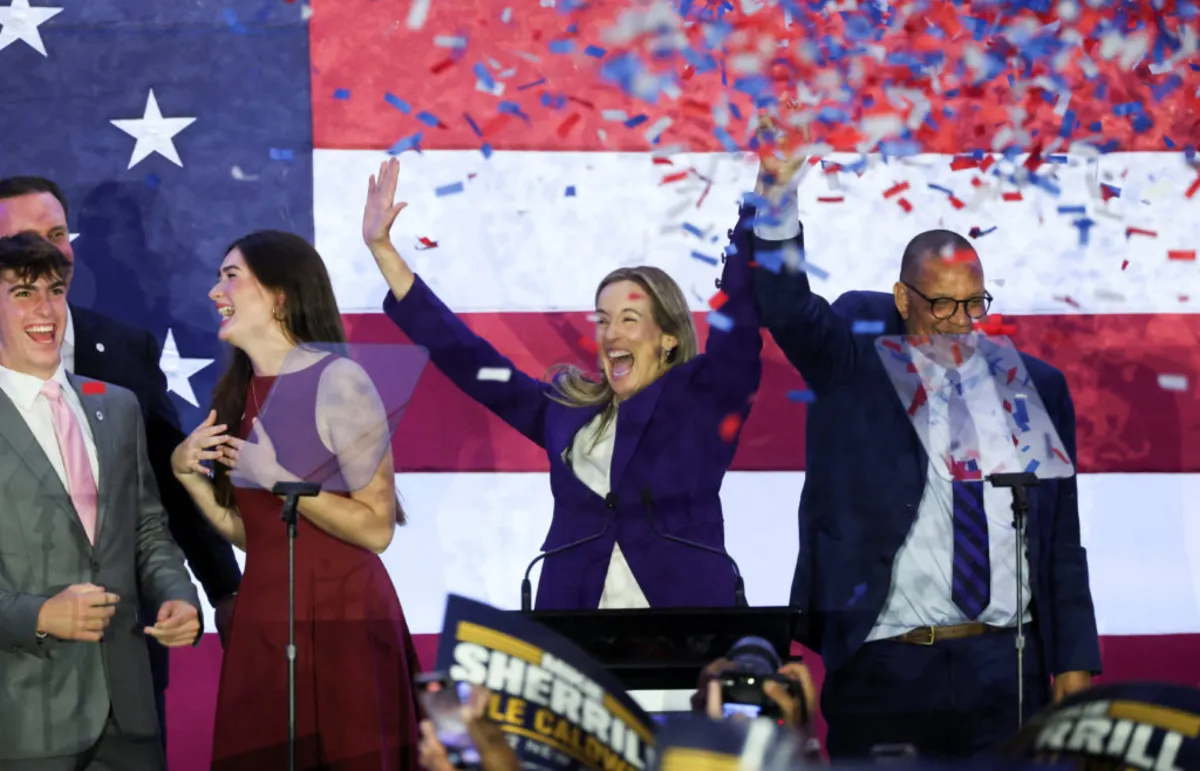
In the lead-up to the recent elections, former President Donald Trump was notably absent from the campaign trail. However, many GOP candidates chose to closely align themselves with Trump, banking on the momentum of his significant victory from the previous year. Their strategy hinged on the belief that Trump's success could pave the way for their own electoral triumphs, despite the historical trend of the party in power facing challenges during off-year elections. Unfortunately for them, this approach proved to be misguided.
In stark contrast, Democrats emerged from the elections with renewed hopes of regaining national relevance. They showcased a variety of strategies, from embracing a moderate stance to advocating for increased government spending aimed at enhancing voters’ lives. Notably, in New York City, a self-identified democratic socialist, who has previously been criticized by Trump, may rise as a national figure if elected mayor. Meanwhile, California voters are set to make a pivotal decision on redrawing the state's House map, a move intended to counter Trump's attempts to reshape the balance of congressional power.
Former Representative Abigail Spanberger is set to become Virginia’s next governor, marking a historic milestone as the state’s first female chief executive. Similarly, Representative Mikie Sherrill secured the New Jersey governor's office by running campaigns predominantly centered around the economy, public safety, and healthcare. Both candidates strategically distanced themselves from the Democratic Party's more extreme left-wing policies, emphasizing what Spanberger described as “pragmatism over partisanship.”
A growing faction of Democratic leaders believes that adopting a moderate approach is crucial for the party's revival, especially after the GOP's recent control of the White House and both congressional chambers. In their campaigns, Spanberger and Sherrill concentrated on rising living costs, such as groceries, energy, and healthcare—areas where Trump has struggled to deliver results. Their moderate stances also included downplaying support for progressive priorities like LGBTQ rights and resisting Trump's attacks on American institutions. Notably, Spanberger rarely mentioned Trump's name during her campaign.
While Trump and his Republican allies focused on immigration, crime, and cultural issues, voters in key states expressed greater concern for economic issues. According to the AP Voter Poll, which surveyed over 17,000 voters across New Jersey, Virginia, California, and New York City, the primary concerns for voters revolved around the economy, jobs, and the high cost of living. Ironically, the very economic anxieties that once propelled Trump into the presidency now appear to be undermining the GOP's aspirations in the current electoral landscape.
As the 2025 elections unfolded, economic worries were at the forefront for many voters. Approximately half of Virginia voters identified the economy as their top concern, while those in New Jersey cited either taxes or the economy as critical issues. In New York City, over half of voters expressed that the cost of living was their primary concern. This focus on economic issues raises questions about whether these voter sentiments could help resolve the ongoing government shutdown, which has persisted for over a month.
Despite Trump's lack of direct campaigning in Virginia and New Jersey, the gubernatorial races were inevitably viewed as a referendum on Trump's job performance and his overall leadership direction. The AP Voter Poll indicated that nearly 60% of voters in these states expressed feelings of anger or dissatisfaction with the current state of the nation. In California, half of the voters shared similar sentiments about the country's trajectory.
While moderates celebrated victories in Virginia and New Jersey, a self-proclaimed democratic socialist, Zohran Mamdani, emerged victorious in New York City. His bold agenda aimed at addressing economic inequality resonated with voters, resulting in the highest turnout for a mayoral election in the city in three decades. However, Mamdani's win also raised concerns among some business leaders and members of the Jewish community due to his past statements regarding personal wealth and Israel.
As the dust settles from the recent elections, the implications for both parties are profound. With moderates leading in Virginia and New Jersey, and a radical new figure like Mamdani on the rise in New York City, both parties may face new challenges. Republican campaign committees have already begun linking vulnerable House Democrats to Mamdani's far-left politics, indicating that the fallout from these elections could extend well into the upcoming midterms.
The recent elections highlighted the shifting political landscape, revealing the importance of economic concerns in determining voter preferences. As the GOP grapples with the implications of Trump's distancing from the electoral results, Democrats are poised to capitalize on their newfound momentum and diverse strategies as they head into the midterms.